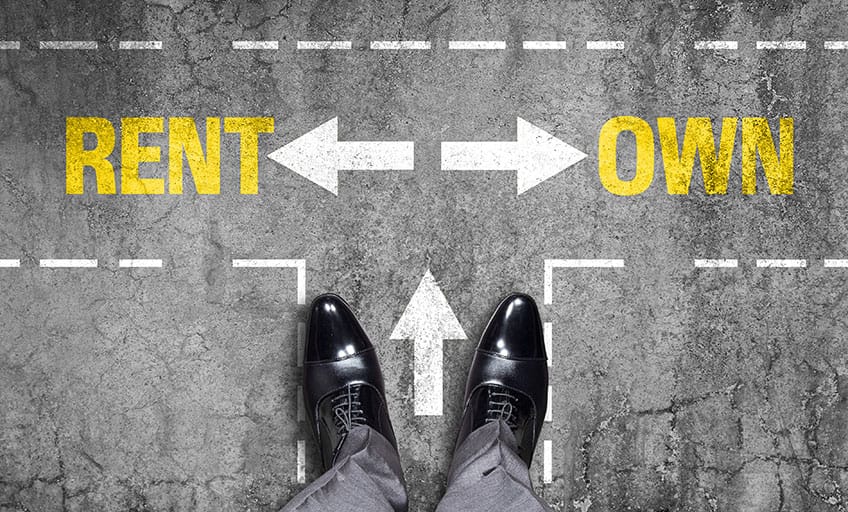Pros and Cons of Owning a House for Airbnb via Mortgage vs. Renting a House for Airbnb Arbitrage

The short-term rental market, mainly through platforms like Airbnb, has opened numerous opportunities for savvy investors and entrepreneurs. If you’re considering diving into this space, you might be weighing the benefits and drawbacks of owning a house via mortgage versus renting a home and leveraging rental arbitrage to profit from Airbnb. Both approaches have their merits and challenges, and the right choice largely depends on your financial goals, risk tolerance, and long-term strategy.
Owning a House for Airbnb via Mortgage
Pros:
1. Equity Building: When you own a property, you build equity over time as you pay the mortgage. This equity can be tapped into later for other investments or financial needs, and the property’s value could be appreciated, increasing your net worth.
2. Control and Flexibility: As the owner, you have full control over the property. You can make improvements, manage the listing without landlord restrictions, and decide when and how to rent the property. This flexibility can lead to higher profitability if you manage the property effectively.
3. Tax Benefits: Homeowners can take advantage of various tax deductions, including mortgage interest, property taxes, and depreciation. These deductions can significantly reduce the overall tax burden, making the investment more profitable.
4. Long-Term Stability: Owning a property gives you long-term stability in the market. You’re not subject to potential rent increases or the risk of a landlord deciding not to renew your lease, which can be a concern with rental arbitrage.
Cons:
1. High Upfront Costs: Purchasing a property requires a significant upfront investment, including a down payment, closing costs, and potentially higher insurance premiums. This can be a barrier for those without substantial capital.
2. Maintenance and Repairs: As the owner, you’re responsible for all maintenance and repairs, which can be costly and time-consuming. Unexpected issues, like plumbing or roofing problems, can eat your profits.
3. Market Risk: The real estate market can be unpredictable. If property values decline, you could owe more on your mortgage than the property is worth. Additionally, changes in local regulations or the economy can impact your ability to generate rental income.
4. Debt Obligation: Taking on a mortgage means committing to a long-term debt. If your Airbnb income fluctuates, you must still meet your mortgage payments, which can create financial stress.
Renting a House for Airbnb Arbitrage
Pros:
1. Lower Initial Investment: Rental arbitrage typically requires less upfront capital. You don’t need to devise a sizeable down payment or cover the property costs. Instead, you might only need to pay the first and last month’s rent, security deposit, and furnishings.
2. Flexibility: Rental arbitrage offers flexibility because you can test different markets and properties without being tied down to one location. If a property isn’t performing as expected, you can exit the lease after the term ends and try a different market.
3. Reduced Risk: Without owning the property, you’re not exposed to market fluctuations or the risk of property devaluation. Your primary focus is maximizing rental income rather than worrying about property values.
4. Scalability: With less capital in property ownership, it’s easier to scale your Airbnb business by taking on additional rental properties. This can lead to a diversified portfolio and potentially higher overall returns.
Cons:
1. Limited Control: As a renter, your ability to modify the property or implement changes that could increase your rental income is limited. You must adhere to the landlord’s rules, which may restrict your ability to capitalize on the property thoroughly.
2. Landlord Approval: Not all landlords can sublet their property on Airbnb. Finding a property where the landlord agrees to a rental arbitrage arrangement can be challenging and may require negotiation.
3. Rent Increases and Lease Terms: You’re subject to the lease terms, which could include rent increases or non-renewal at the end of the lease term. This lack of long-term stability can impact your business planning.
4. Profit Margin Pressure: With rental arbitrage, your profit margins can be squeezed by paying rent each month, especially during slow seasons or if the rental market becomes oversaturated. Unlike property owners who can afford to lower prices temporarily, renters have less room to maneuver.
Conclusion
Owning a property via mortgage and engaging in rental arbitrage offer viable paths to success in the Airbnb market, but they cater to different investors. If you’re looking for long-term stability, equity building, and greater control, owning a property might be the better option, provided you have the capital and risk tolerance. On the other hand, rental arbitrage could be the way to go if you prefer a lower upfront investment, more flexibility, and the ability to scale your business quickly.
Ultimately, the best choice depends on your personal financial situation, goals, and comfort level with the associated risks. Whether you buy or rent, success in the Airbnb market will come down to how well you manage your properties, provide value to your guests, and navigate the evolving landscape of short-term rentals.

